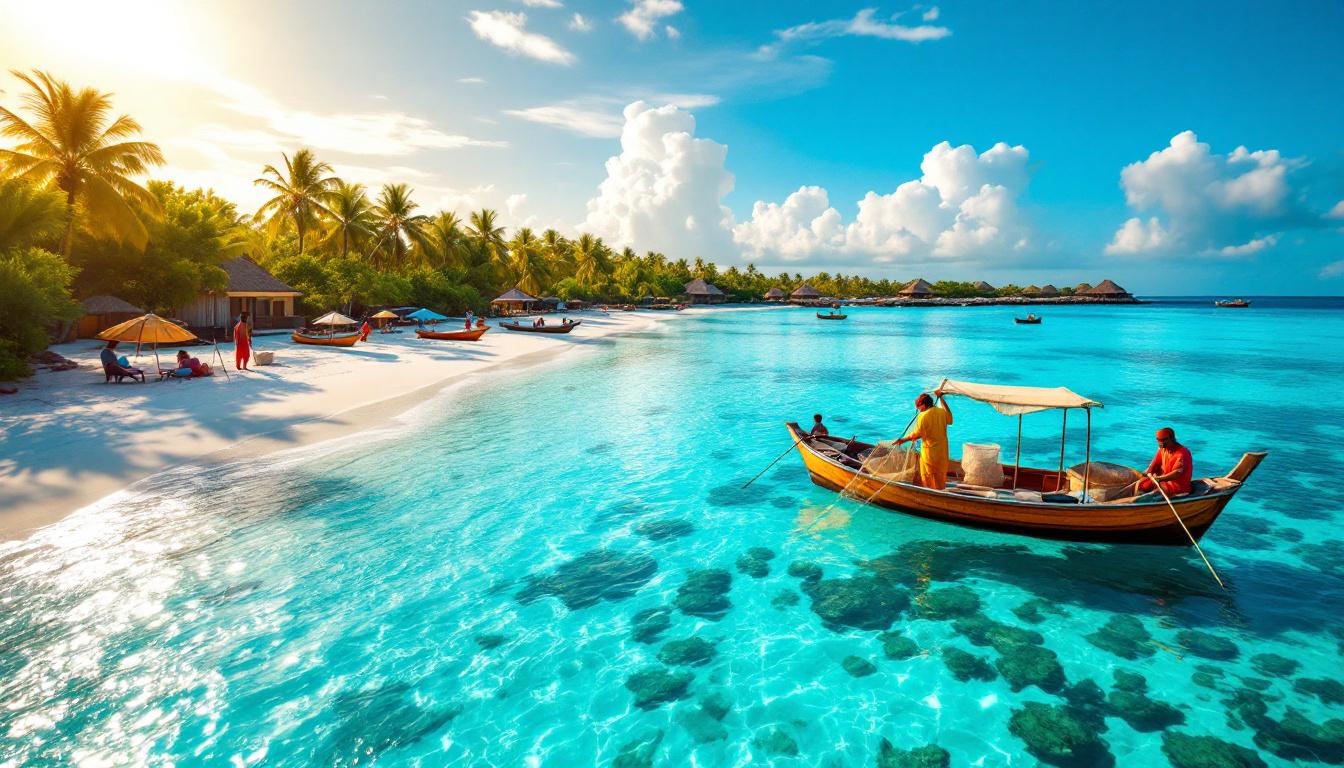The speedboat cuts through turquoise waters as we approach Maafushi, and I notice something unusual. Local residents are actively managing who visits their island, carefully balancing tourism income with cultural preservation. This isn’t your typical Maldivian resort experience.
What strikes me most is how 4,471 residents have created a tourism model that serves their community first. Unlike resort islands where locals are employees, here they’re the owners, operators, and guardians of authentic Maldivian culture.
The island’s tourism committee doesn’t advertise widely, preferring word-of-mouth recommendations from respectful travelers. They’ve discovered that sustainable visitor numbers protect both their traditions and their pristine marine environment.
The community protection model resort chains fear
Local ownership that changes everything
Every guesthouse on Maafushi is locally owned and operated, creating direct economic benefits for families who’ve lived here for generations. The community reinvests tourism revenue into education, healthcare, and marine conservation projects that strengthen their cultural foundation.
Cultural protocols that preserve authenticity
Residents maintain strict Islamic customs and traditional fishing practices alongside tourism. Visitors must dress modestly outside beach areas, respect prayer times, and participate in cultural exchanges that benefit the community rather than exploit it.
What $30 per night actually gets you
Authentic experiences resort guests never access
Local families invite guests to join traditional fishing expeditions at dawn, teaching ancient techniques passed down through generations. You’ll prepare fresh catches using traditional methods and share meals with families who’ve called this island home for centuries.
Marine conservation participation
Community-led snorkeling tours include coral restoration education and sea turtle protection efforts. Guides are local marine biologists who combine traditional ecological knowledge with modern conservation science, creating meaningful experiences that support environmental protection.
Why resort chains are being kept at bay
Government regulations protecting inhabited islands
The Maldivian government’s 2025 tourism regulations specifically support community-based accommodation over large resort developments. Green taxes favor small guesthouses ($6 per night) while luxury resorts pay significantly more, encouraging sustainable tourism models.
Community resistance to overdevelopment
Local councils actively limit tourism infrastructure expansion, maintaining the island’s 15-minute walkable scale and traditional village layout. They’ve refused multiple resort development proposals, choosing sustainable growth that preserves their cultural identity.
The authentic Maldivian culture you’ll experience
Daily life integration opportunities
Residents invite respectful visitors to participate in traditional crafts workshops and Islamic cultural ceremonies. You’ll learn dhivehi language basics, understand traditional music, and appreciate the sophisticated maritime culture that sustains this community.
Marine heritage preservation in action
Local captains share centuries-old navigation techniques using stars and ocean currents during sunset dhoni excursions. These aren’t tourist performances but authentic skill-sharing sessions that preserve maritime knowledge while creating meaningful cultural exchanges.
Maafushi represents something increasingly rare: a community that has successfully balanced tourism income with cultural preservation. The residents’ careful approach to visitor management creates experiences that benefit both travelers seeking authenticity and locals protecting their heritage.
The island’s model proves that sustainable tourism can provide economic opportunity without cultural exploitation. By respecting local protocols and supporting community-owned businesses, visitors contribute to a tourism system that strengthens rather than undermines traditional Maldivian culture.
Planning your respectful visit to Maafushi
When should I visit to support the community best?
November through April offers the best weather, while May through October provides lower prices and fewer crowds. Local guesthouses appreciate visitors who stay longer and engage meaningfully with cultural activities rather than treating the island as a brief stopover.
What cultural protocols should I follow?
Dress modestly outside designated beach areas, respect prayer times, ask permission before photographing locals, and participate in community activities when invited. The island provides cultural orientation sessions for all visitors to ensure respectful behavior.
How do I book authentic local accommodations?
Contact guesthouses directly through local tourism associations rather than international booking platforms. This ensures your money goes directly to families and supports the community’s sustainable tourism model while securing authentic cultural experiences.
What makes this different from resort island visits?
You’ll live alongside local families, participate in daily community life, and contribute to cultural preservation efforts. The experience focuses on meaningful cultural exchange rather than luxury isolation, creating lasting connections with authentic Maldivian culture.
Is the island suitable for different types of travelers?
The community welcomes culturally curious travelers seeking authentic experiences. Families appreciate educational opportunities, couples enjoy intimate cultural immersion, and solo travelers find genuine hospitality. The island works best for visitors who value authentic cultural experiences over luxury amenities.
